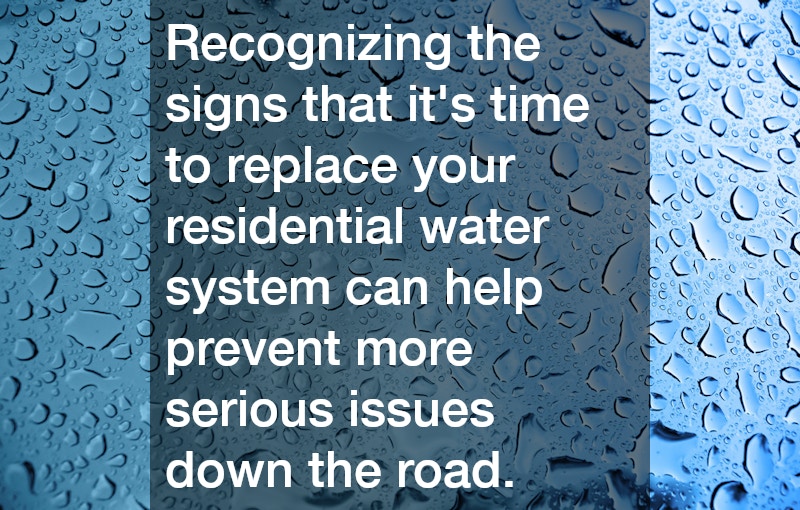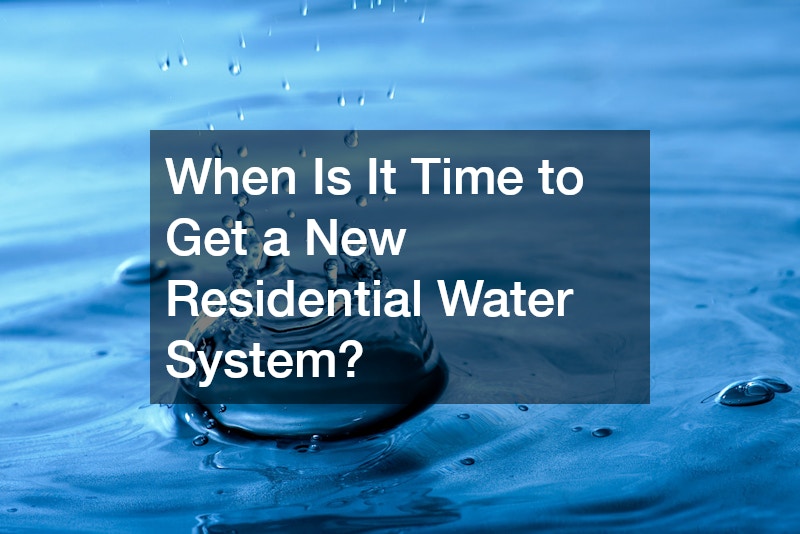When Is It Time to Get a New Residential Water System?
A home’s water system is a crucial component that ensures the availability of clean and safe water for drinking, cooking, bathing, and other daily activities. Over time, even the best residential water systems can show signs of wear and inefficiency. Recognizing when it’s time to replace your water system is essential to maintaining your home’s functionality and ensuring water safety. Here are some indicators that it might be time to invest in a new residential water system.
1. Frequent Repairs and Maintenance
One of the most obvious signs that your residential water system may need replacement is the frequency of repairs. If you find yourself frequently calling a plumber to fix leaks, clogs, or water pressure issues, it could be more cost-effective to invest in a new system rather than continuing to repair the old one.
Aging systems may develop problems like rust, corrosion, or mineral buildup, which can cause persistent issues. These recurring problems are not only inconvenient but also costly over time. If the cost of repairs starts approaching the price of a new system, it’s a clear sign that replacement is the better option.
2. Decreased Water Quality
One of the primary functions of a residential water system is to provide clean and safe water. If you notice changes in the taste, odor, or appearance of your water, it could indicate that your system is no longer filtering or treating the water effectively. Common signs include cloudy water, metallic tastes, or a sulfurous smell.
Aging pipes can also contribute to water contamination, as they may release rust or other particles into the water. If you notice these issues, have your water tested. If contamination is present, it’s time to consider upgrading your water system to ensure your family’s health and safety.
3. Reduced Water Pressure
A significant drop in water pressure can be a sign of an underlying issue with your residential water system. While minor fluctuations in water pressure can be caused by localized problems like clogged pipes, a persistent reduction in water pressure might indicate a more significant issue, such as widespread pipe corrosion or a failing water pump.
Low water pressure can affect your ability to perform basic tasks like showering, washing dishes, or doing laundry. If addressing individual leaks or blockages doesn’t restore proper pressure, a system-wide replacement may be necessary.
4. Outdated Technology
Residential water systems, like most home technologies, have seen advancements in efficiency and performance. If your water system is more than 10-15 years old, it may be outdated and less efficient than newer models. Modern systems often feature advanced filtration, energy-saving technology, and better water treatment options.
Upgrading to a newer system can reduce energy consumption, lower water bills, and provide better water quality. Additionally, modern systems are designed to meet more stringent environmental regulations, making them a greener option for eco-conscious homeowners.
Recognizing the signs that it’s time to replace your residential water system can help prevent more serious issues down the road. If you’re facing frequent repairs, decreased water quality, or outdated technology, upgrading to a new system can improve efficiency, safety, and peace of mind. Regular maintenance and early replacement when necessary are essential for maintaining a reliable water supply and avoiding costly disruptions.
.

